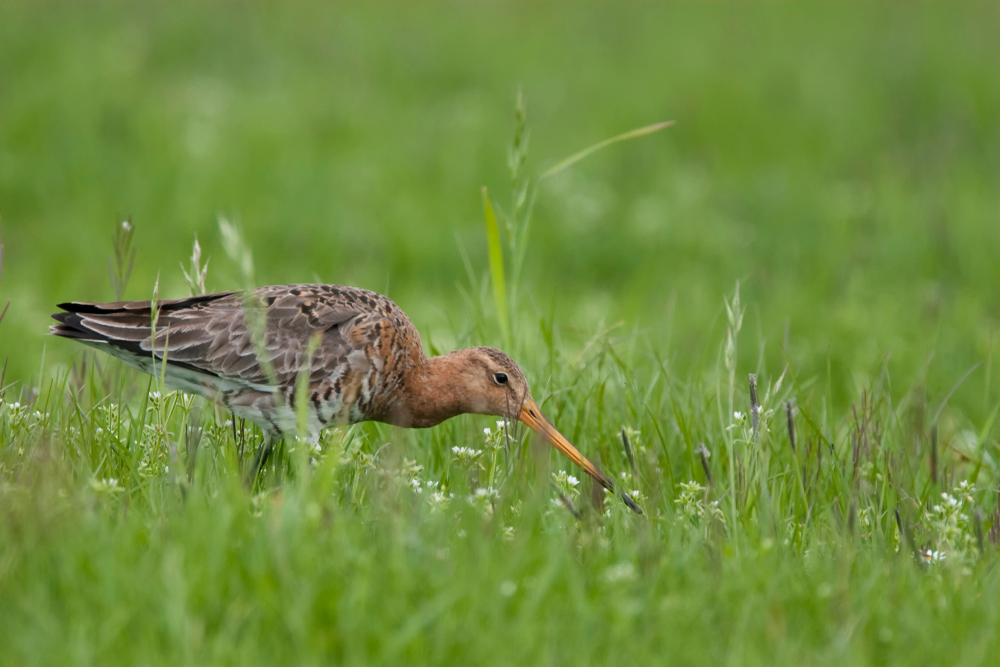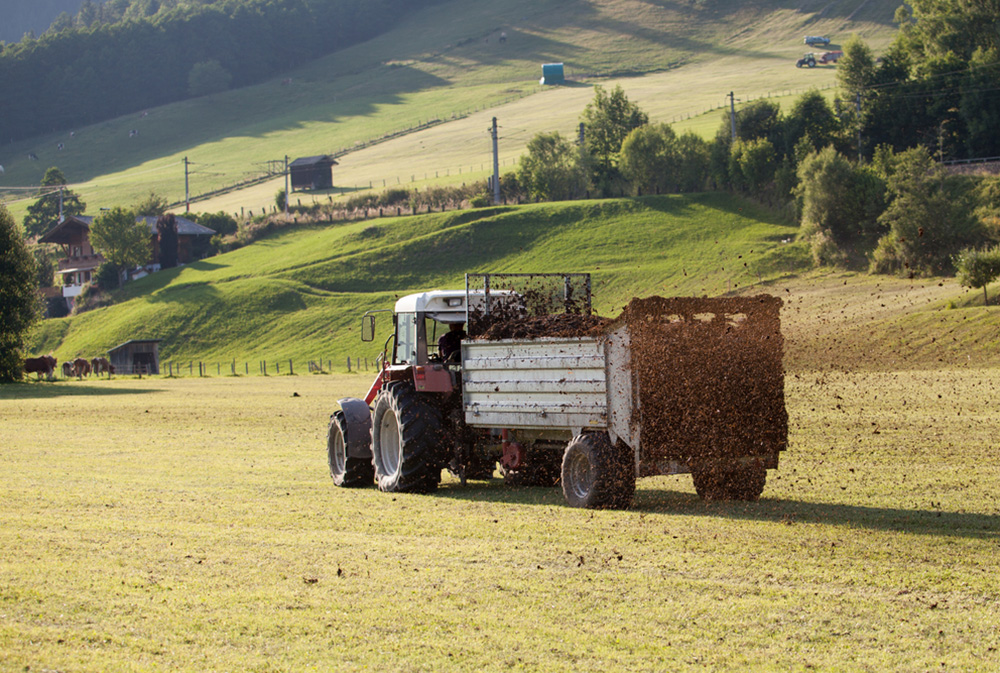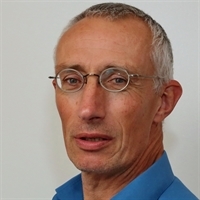Separating manure: saving the climate
When excrement and urine from cows or pigs mix, a lot of methane gas and ammonia is produced. But if the urine and manure are separated, greenhouse gas emissions and ammonia formation can be reduced by up to 75%. Researchers at Wageningen University & Research are working together with farmers to separately collect and store these products. Separately spreading manure and urine across the land is also beneficial for the soil as well as farmland birds.
Manure and urine are collected together in many cowsheds and pig houses. This is a very effective method, says researcher Theun Vellinga. ‘It means everything’s in one place from the start, making it easy to pump away, easy to store in one tank and easy to process,’ he explains. However, a lot of methane gas and a great deal of ammonia are formed from liquid manure, the mixture of excrement and urine. That’s why it’s better to collect and store the urine and manure separately, after which they can be used to fertilise the land.
Considerable reduction
‘Basically, and crudely put, you need to intervene between bum and soil. This solves several issues at once,’ says Vellinga. You can reduce methane gas emissions by 75% and ammonia formation by up to 75%, too. ‘That’s a very considerable reduction.’

Farmland birds
There are a whole range of other advantages. Liquid manure is spread over the land by injecting it into furrows, created by making incisions into the ground. This is known as ‘slurry fertilisation’. However, as shown by recent research into earthworms at the University of Groningen, the cutting process harms larger species of earthworms that are a food source for farmland birds such as the black-tailed godwit. The incisions also cause the soil to dry out quickly, Vellinga adds. ‘This is also bad for farmland birds, as they have to be able to break through the clay soil with their beak in order to feed.’
“We are working with a group of farmers on systems for the separate collection, storage and use of manure and urine. These farmers are committed to conserving farmland birds, ensuring biodiversity and reducing emissions.”
Biodiversity
Some farmers already have livestock housing in which manure and urine are collected separately, and soon there will be more of this housing. The researchers from Wageningen are working together with a group of Frisian farmers to improve the systems. ‘These farmers are committed to conserving farmland birds, preserving biodiversity and reducing emissions,’ explains Vellinga.
Long term
It will take some time before the whole of the Dutch livestock sector has adopted the system. Vellinga and his colleagues are aiming for the process to be complete by 2050. ‘Farmers rebuild or renovate their livestock housing roughly every thirty years. This is a pretty expensive job, so if you built a new stable two years ago, you’re not going to overhaul it now.’ In the meantime, farmers can implement measures to reduce methane emissions and ammonia released by liquid manure.

Pig and cow toilets
Separating manure and urine is easier to do with pigs than with cows. ‘We already have “pig toilets,” where the animals learn to do their business in different places. Now someone’s also teaching cows how to do this.’ In addition, the researchers will work with the farmers to find the best methods for separate storage and separate spreading across the land. Vellinga adds, ‘It’s important to find a good balance – especially in terms of manure, as this can have a huge effect on soil fertility.’
Substantiation
Vellinga expects the national government, provinces, farms, individual farmers and knowledge institutes to cooperate in further research. ‘This could provide a huge boost to biodiversity preservation efforts and the fight against climate change.’ The researcher emphasises that many farms and other researchers are exploring ways to separate manure and urine flows. ‘Wageningen is certainly not the only one. But we do provide comprehensive solutions and can support these solutions with measurements.’
Read more
- On research into climate-smart livestock farming
- Earthworms are good for the soil, farmland birds and farmers. They increase the fertility of the soil and the yields of the land
- Read this blog in Dutch

